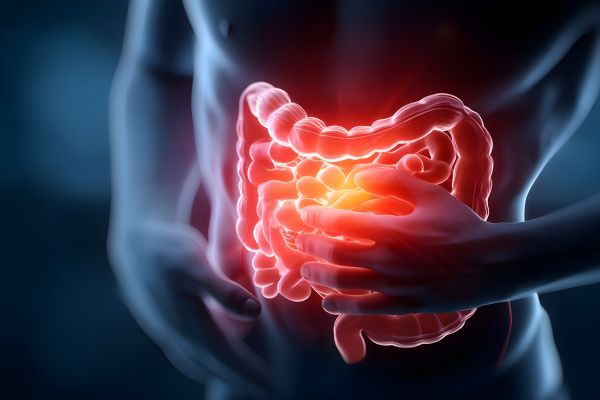
From the Desk of Carolyn Dean MD ND
In today’s blog I want to drill down on phenomenon that I haven’t talked about much, and modern medicine never talks about sugar and heart disease. It’s covered in much greater detail in my latest book Exposing Sugar Toxicity, a Clinical Perspective.
What Dr. Google or an MD might say about sugar and heart disease
Depending what page you land on, Dr. Google says that sugar is indirectly related to heart disease, in that its overuse can result in obesity which is a risk factor for heart disease. Elsewhere you can read that 40% of heart-related deaths can be attributed to dietary factors.¹
I see in virtually every nutrition study that I’ve researched, the authors never commit to a conclusion and say that more research is needed. However, who’s going to fund for those nutrition studies; certainly not the sugar industry.
What I say about sugar and heart disease
Unfortunately, medical science researchers analyze previous studies and experiments and test those theories and conclusions in a circular fashion. They never make any recommendations other than asking for more funding to pay their salaries. Ideally, the study of sugar and heart disease, should expand and update medical knowledge and practice and serve doctors and patients to make informed choices about the consumption of sugar. That’s not happening!
There are studies that do confirm that sugar causes heart disease. But those studies were more than 50 years ago and because the studies proved that sugar caused harm in rats, the sugar industry frantically pulled funding. Those studies should have evolved into human studies but that never happened. In fact, the sugar industry suppressed the findings of the studies which showed that sugar harms the heart, even if there is no weight gain.
That’s a hugely important point because Dr. Google tells us that sugar can lead to weight gain and obesity which can lead to heart disease. But 50 years ago, this study of rats showed there was direct harm to the heart even without weight gain. The sugar industry did not like that outcome, so it worked to suppress the information.
Few people know that the sugar industry produces 190 million metric tons of sugar annually, mostly for food processors. In 2023, sugar sales topped $31 billion.
Imagine being the guy in the 1960’s whose job it was to misinform the public about the harmful effects of sugar on the heart so that sugar could go on to be a mega billion-dollar industry. Imagine, if those studies had been continued and replicated and shared with doctors who could have advised their patients accordingly to remove sugar from their diet.
Instead, they said sugar didn’t cause weight gain, lack of exercise caused weight gain. The sugar industry stopped funding studies of its effects on the human body because they didn’t want the public to know that sugar would go on to contribute to the leading cause of death in the world: heart disease.
Do no harm?
Under the influence of pressure from the sugar industry, health organizations suggest that it’s safe to obtain between 10 and 25% of your daily calories from sugar. I’ve said it before and I’m going to hammer it home – that means, if you eat a 2,000-calorie diet, 500 calories or 125 grams of carbs can come from sugar. The amount of carbs that you can eat but still maintain your weight or lose weight is between 20 and 50 grams.
Thus, the amount of sugars “allowed” by our health experts ensures weight gain. Even 10% of added sugars from a 2,000-calorie diet means a carb intake of 50 grams. Note that a can of soda may contain 10 teaspoons or 40 grams of sugar; a bottle of energy drink, like Rockstar, can have up to 15 teaspoons or 65 grams of sugar!
Let’s blame fat!
Without getting into the logistics of how they did it, know that the sugar industry managed to manipulate focus away from sugar as contributing to heart disease, and towards fats as the major culprit. In my sugar book, you can read the whole story about how we were turned into fat and cholesterol-haters by the sugar industry.
Briefly, if you go back to studies done in 1959 in Ireland, like I did, you’ll find that the incidence of cardiovascular death was higher with extensive simple carb diets than high fat diets. Another study done in Japan showed a strong correlation between high sugar intake and cardiovascular death. So the writing was on the wall about the disadvantages of a high carb diet on heart health. North American researchers don’t place a value on studies conducted in other countries, but the sugar industry also threw shade on sugar research.
Now let’s blame salt!
This section doesn’t have much to do with sugar but it’s important in the heart debate. As we all know, salt has been demonized by allopathic medicine as one of the causes of hypertension and heart disease. That may be true to some extent for table salt (sodium chloride) used in saltshakers, and much more so in most processed foods, but it is not true for sea salt that contains 72 trace minerals. Many of these trace minerals haven’t even been studied with regard to optimum health, yet doctors tarnish sea salt with the same brush as sodium chloride.
Sea salt, with its 72 minerals is essential to your cellular function as it helps create an electrolyte balance. A deficiency in trace minerals will interfere with your body’s ability to pull water into the cells, often resulting in swollen hands and feet.
I stand by my recommendation to consistently use ¼ teaspoon of unrefined sea salt in each liter of drinking water.
What if?
Let’s imagine what the world would be like if medicine had followed the Hippocratic Oath to “first do no harm” and “use those dietary regimens which will benefit…patients.”
If medicine and the public were more aware of the dangers of sugar and the industry covering up the problem, they might not have attacked me and convinced my licensing body that I was a danger to society because I said bad things about sugar! By keeping me (and other critics) out of mainstream media, the message of natural solutions is greatly hampered. Drug companies became the main advertiser on TV and natural solutions continued to be demonized on a much larger scale.
Healthy options for sugar and heart disease
First stop eating sugar. A few pieces of fruit a day are usually OK. Second, add ¼ teaspoon of sea salt to a liter of your drinking water. Have a look at my blog from July 8th about Heart Health. Then be sure and call our wonderful Customer Experience Team to help build a healthy protocol that you can depend on. That protocol will often include our picometer magnesium, multiple mineral combination, methylated, food-based Bs, and vitamin C.
More Sugar Blogs to Come! But in the meantime, be sure to pick up your $0.99 Kindle copy of Exposing Sugar Toxicity on Amazon.
Carolyn Dean MD ND
The Doctor of the Future
¹ https://www.mayoclinicproceedings.org/article/S0025-6196(19)30911-5/fulltext



